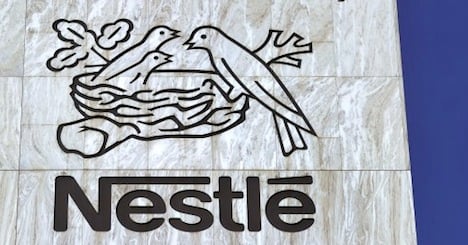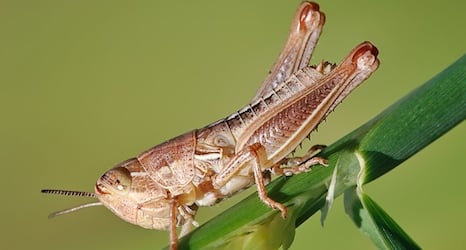The news came Monday as Swiss retailers such as Coop and Manor pulled horsemeat-tainted products from shelves, while German discount chain Lidl removed ready-made meals from its Finnish, Danish and Swedish stores.
Meanwhile the French firm that sparked the Europe-wide food alert, by allegedly passing off 750 tonnes of horsemeat as beef, was allowed to resume production of minced meat, sausages and ready-to-eat meals.
But Spanghero, whose horsemeat found its way into 4.5 million "beef" products sold across Europe, will no longer be allowed to stock frozen meat, France's Agriculture Minister Stephane Le Foll told AFP.
Nestlé, the world's biggest food company, said in a statement that "our tests have found traces of horse DNA in two products."
"The mislabeling of products means they fail to meet the very high standards consumers expect from us," it added.
Therefore the company is "voluntarily removing" two chilled pasta products, Buitoni Beef Ravioli and Beef Tortellini from sale in Italy and Spain immediately.
A Nestlé frozen meat product for catering businesses, produced in France, will also be withdrawn from sale.
Nestlé apologized to consumers while assuring that "actions being taken to deal with this issue will result in higher standards and enhanced
traceability."
Earlier Monday German discount chain Lidl pulled ready-made meals from the shelves of its Finnish, Danish and Swedish stores after tests confirmed the presence of horsemeat.
Lidl said last week it had found traces of horse in beef goulash and a
tortellini bolognese product sold by its Austrian subsidiary.
Concerns about horsemeat first emerged in mid-January when Irish authorities found traces of horse in beefburgers made by firms in Ireland and Britain and sold in supermarket chains including Tesco and Aldi.
The scandal then intensified when French firm Comigel alerted Findus this month to the presence of horsemeat in the meals it had made for the food giant and which were on sale in Britain.
Since then, supermarket chains have removed millions of "beef" products as tests are carried out to detect horsemeat, which is eaten in many European countries but is considered taboo in Britain.
Horsemeat in "beef" ready-to-eat meals had already been confirmed in products found in Switzerland, Britain, Ireland, France, Austria, Norway, the Netherlands and Germany.
With Italy and Spain now also tainted by the horsemeat scandal it appears that most of the continent has been affected.
France's DGCCRF anti-fraud office concluded after an initial inquiry that 500 tonnes of Spanghero horsemeat were sent to Comigel, whose frozen meals were sold to 28 different companies in 13 European states.
Spanghero's sanitary licence was suspended last Thursday after it was accused of passing off huge quantities of mislabelled meat over a period of six months.
Spanghero on Friday again insisted it was not responsible for the mislabelling that has seen supermarket chains across the continent pull
millions of suspect food products from their shelves.
"I don't know who is behind this, but it is not us," said Spanghero boss Barthelemy Aguerre, adding that the accusations were putting his 300 workers' jobs on the line.
"I will prove our innocence."
Union leaders at Spanghero had warned that revoking its licence would put the company out of business.
The European Union, seeking to reassure nervous consumers that their food is safe and to end the horsemeat scandal, on Friday agreed the immediate launch of tests for horse DNA in meat products.
Germany said Monday it planned to tighten checks and sanctions on food production under an action plan to counter the scandal.



 Please whitelist us to continue reading.
Please whitelist us to continue reading.
Member comments